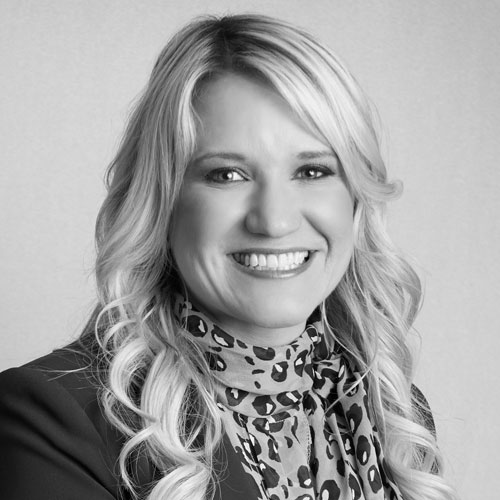Along with factors such as fuel prices, fare competition, and passenger safety, health programs are also key to the success of airlines, which must ensure a healthy workforce both in the air and on the ground.
Vickie Strickland is the steward of that workforce at one of the world’s largest airlines, Atlanta-based Delta Air Lines. As director of health strategy and resources, it’s her job to conceive and administer health plans for everyone from baggage handlers and gate agents to pilots and flight attendants.
“What makes Delta unique is our people,” Strickland says. “Our principal founder and first CEO, C.E. Woolman, established several core values, including that if we take care of our employees, they’ll take care of our customers.”
Strickland is an accidental healthcare enthusiast. Originally from Alexander City, Alabama, she studied marketing at nearby Auburn University with the intent to work in the marketing department of Russell Athletic—her hometown’s largest employer. When a family friend offered her an entry-level job in the employment office at Delta, however, she took it with the goal of making ends meet while she looked for other opportunities. More than twenty-one years later, she’s still there.
Strickland migrated early in her career from employment to health services. Her work initially was limited to benefits transactions and administration, and then it evolved to include benefits communication. Then September 11 happened. “After 9/11, a lot of things changed for Delta and the airline industry overall,” Strickland says, recalling the post-terrorism recession that all but crippled US airlines. “That’s when we had to really start looking at what benefits decisions to make and tying them strategically to the needs of the business.”
After a four-year hiatus spent working on international benefits, Strickland returned to Delta’s health services team in 2006 as manager of the company’s domestic health plans, which underwent a dramatic change in 2008 when Delta became the first airline to move to consumer-driven health plans—high-deductible health reimbursement and health savings account (HSA) options instead of traditional employer-sponsored plans.
“We eliminated all of our HMO and PPO options and introduced account-based plans, which was a massive change for our employees,” Strickland says. “That was a really pivotal point in my career, where I became truly passionate about the messages we were sending.”
Instead of administrative messages about co-pays and premiums, Delta’s transition to consumer-driven health plans necessitated educational messages about how to find, choose, and manage one’s own healthcare. “We needed our employees to understand that where and how they spend their healthcare dollars means a lot in terms of what we all pay collectively [for insurance],” she says.
Employees who once paid high premiums out of their paycheck in exchange for affordable office visits were now being asked to do the opposite: deduct less from their paycheck, but pay more at the point of care using funds saved tax-free in an HSA or a health reimbursement account.
“If you look at the cost of a CAT scan, it’s three to four times more expensive in a hospital setting than in a freestanding facility,” Strickland explains. “Before we had consumer-driven health plans, employees might not have thought about that. They visited the doctor, paid their co-pay, and went about their day. Now, they know what the cost of their care is and look for those providers who will provide care that’s both high-quality and cost-efficient.”
Having increased visibility into the cost of healthcare has made employees more receptive than ever to conversations about wellness, which is another major theme of Delta’s healthcare transformation. “If you keep yourself healthy, you’ll likely avoid longer-term health conditions and health costs,” Strickland continues. She notes that Delta incentivizes wellness by depositing up to $650 in an employee’s health account when they complete certain health actions, such as a survey and physical exam demonstrating good health. “Over time, making sure our employees and their families are healthy should help us reduce what we all pay for healthcare.”
As beneficial as they are, messages about healthcare costs and quality aren’t easy to send—especially when you have a workforce as diverse and dispersed as Delta’s.
“We have people who are flying planes, people who are on the phone all day taking reservations, people who are behind ticket counters—all of them receiving messages at different times and in very different ways,” Strickland says, citing effective communication as her team’s secret sauce. “We have done all kinds of communication: home mailings, e-mails, text messages, on-site posters, table tents, and live meetings. Now, we’re trying to get into more video communication using our Delta Vision internal television channel that is broadcast at a lot of our locations.”
Transmitting the right messages across the right channels has helped Delta achieve promising results since adopting consumer-driven health plans in 2008. Out of the gate, for instance, just 6 percent of Delta’s employees enrolled in an HSA. Today, enrollment is at about 60 percent. Healthcare costs, meanwhile, remain high but are trending downward. Even employees’ health outcomes have improved.
“We have slowed chronic disease progression in our employee population by 37 percent,” Strickland says. “That equates to a little over nine hundred people who we have helped by slowing the progression of their chronic diseases.”
Yet, Strickland says there’s always room for improvement.
“Right now, for example, our incentive-based wellness program is one-size-fits-all,” Strickland explains. “Does body mass index as a health measure really mean much for a pregnant woman? Probably not. What matters to her is having a healthy baby. That’s where we’re going to evolve over the next couple of years: toward being more personalized and meeting our employees where they’re at in their own personal health journey instead of expecting everyone to have the same goals.”
Of course, ears will still pop and stomachs will still bloat. But by making healthcare better and more affordable for its workforce, Delta has ensured that its employees can continue to soar healthfully and happily, no matter what new challenges the industry faces.

